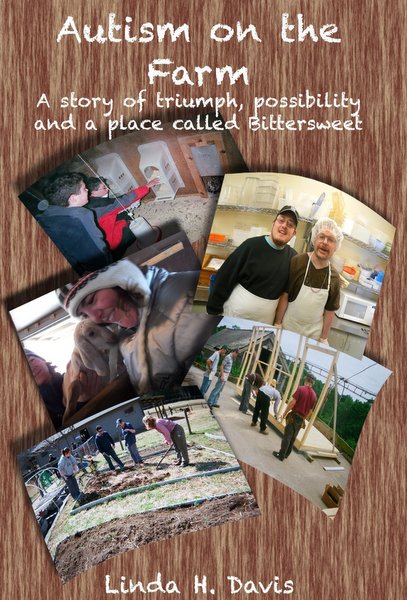
AUTISM ON THE FARM
By Linda H. Davis
Adults with autism have found a place at Bittersweet, a small farming community. Overseen and taken care of by trained volunteers, residents find ways to find safe and meaningful experiences through farm work.
This book tells the stories of several residents of Bittersweet, tracing their journeys and family dynamics to their discovery of Bittersweet, where staff help them find a place to be and activities they can participate in and enjoy. The book also chronicles the struggles of the families and of Bittersweet itself with difficult societal conditions and scarce resources from outside communities or from the government, and the ways in which the staff try to navigate those circumstances to find or create the best possible environment for the people they help.
Designed to be a safe and supportive space, Bittersweet works to cater to the residents’ needs and find ways to grant them enjoyable and productive experiences. With careful attention, Bittersweet staff work to redirect problematic impulses in the residents to safer and more productive outlets, creating an environment that can be more effective than many more traditional programs.
Facing difficulties and obstacles both new and old with patience and diligence, Bittersweet and the adults in its care persevere in maintaining a solid and welcoming community. Frank about its successes, challenges, and setbacks, this is a heartwarming and inspiring story of hope, generosity, and the surprising potential of the human spirit.
“Families talk of autistic adults who have formed close relationships with staff, of even medically complex people with autism who have been able to reduce or entirely eliminate their medications since moving to the farm or ranch, a claim supported by staff and by farmstead studies. The healthy lifestyle and meaningful work can translate into better-functioning people. Like Bittersweet’s Jerry, many adults with autism who live on farms have found new freedoms outside the farm: no longer held back by their sometimes alienating and dangerous behaviors, they shop, eat in restaurants, do volunteer work, and even travel.”
“Bittersweet … adheres to a restraint-free Capability Teaching Practice, a nonviolent, humane approach. Bittersweet staff avoid using the word “no,” trying instead to shape behavior by interjecting a new idea, such as tearing cloth instead of one’s clothes. … one particularly empathetic Bittersweet teacher … introduced window washing to a young man as he rocked—a common autistic tic. “David,” said the teacher, “You rock really well. Why don’t you use your rocking back and forth to help you wash those windows?” It worked. Staff has discovered that Robert St. Clair’s daughter Kathryn will participate in art “when the material is brought out to the barn,” says St. Clair. “We have found that if you are patient, you can be very effective,” says Vicki Obee-Hilty.”
- Linda H. Davis